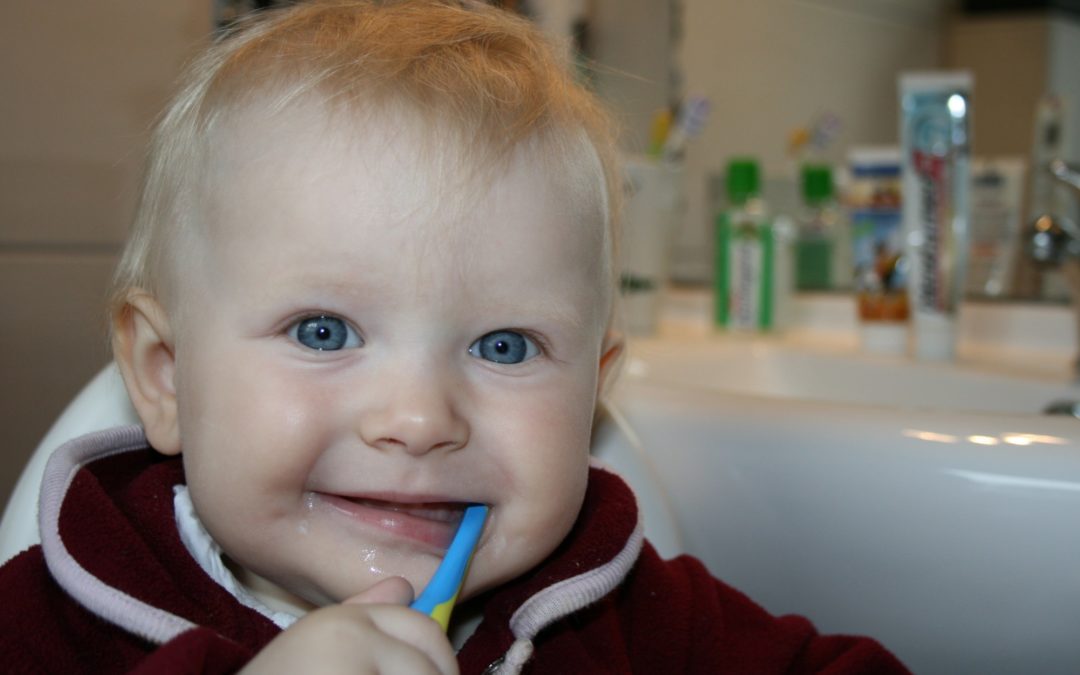Are you preparing for your child’s first dental visit but don’t know what to expect? You’ll be happy to learn that the first dental visit is quick and easy. This is the perfect time to make sure your child’s overall dental health is normal, and you’ll have the opportunity to ask questions that have been bothering you.
With this in mind, read on to learn everything you need to know about the first dental visit–as well as our tips on how to prepare!
1. When Should a Child Have Their First Dental Visit?
It first helps to know when should a baby have their first dental visit. Many dentists recommend that your baby’s first dental visit should be after their first tooth appears. However, you shouldn’t wait longer than their first birthday.
This is because as long as your baby has teeth, they’re just as prone to getting cavities as you are. This also helps you and your dentists become proactive about your child’s dental health. This will make it easier for them to have healthy teeth throughout their adolescent and adult life.
2. The First Exam
When you first take your child in while they’re an infant, the exam will be quick and easy. You’ll most likely sit in the dentist’s chair while you hold your child in your lap. The dentist will exam your child’s gums, jaw, and teeth (or tooth) for overall health.
This is also a great time to ask your dentist questions, such as questions regarding:
- Thumb sucking
- Pacifiers
- Oral habits
- Toothbrushing
- Diet
- And more
Your role as a parent during this time is to help your child feel comfortable with the dentist. You’ll also want to start encouraging them to practice oral health that will become a habit later on in their life.
3. Preparing for the First Exam
Now that you know what will happen for the first exam, how can you expect to prepare? This can be as simple as beginning to read books to your child about oral health and going to the dentist. This will familiarize them with the subject and make the whole process less scary.
It’s important to remember that crying or fussing during the first appointment is normal. Your dentist will do everything they can to make your child feel comfortable and happy.
However, make sure not to schedule the appointment during your child’s usual nap time. You want them to be awake and energized. You may also want to help your child practice opening his or her mouth to prepare for when the dentist will ask them to in order to check their teeth.
4. Subsequent Exams
Once you start seeing the dentist for the first time, it’s important that you schedule regular exams for your child afterward. It’s often recommended that your infant start seeing the dentist every six months as more of their baby teeth start to grow. Diet is the most important thing to watch out for at this stage, as candy can stick to a child’s teeth and cause cavities.
Your dentist will also help your child begin toothbrushing with non-fluoride toothpaste at this stage. They’ll also help give you advice about helping your child with flossing.
5. Learning About Baby Teeth
You’ll find that by taking your child to the dentist regularly, you’ll learn about the importance of baby teeth early on. Even though baby teeth will fall out eventually, they still play a large role in your child’s oral health. Baby teeth will help with your child’s facial development as well as their ability to speak and chew.
Most children will have all 20 of their baby teeth by the time they’re three.
6. Preparing for Elementary School
Elementary school is when baby teeth start to wiggle and get loose as their adult teeth come in. When they’re around the age of seven, your dentist may refer you to an orthodontist if they notice any of the following:
- Baby teeth falling out late or early
- Difficulty speaking, chewing or biting
- Facial imbalance
- Grinding and clenching teeth
- Breathing primarily through the mouth
- And more
These may all be indications that your child will need a full assessment by an orthodontist. It’s better to have an orthodontist look at their teeth earlier rather than later.
7. Dealing With Dental Anxiety
Now that you know what to expect at the dentist as your child grows up, how do you deal with dental anxiety? Even if you’ve done all your preparation and read them great books, your child might still be nervous about going to the dentist. It can be a struggle when you have to make appointments every six months.
You’ll first want to find a quality pediatric dentist that’s used to working with children. They’ll be able to make it a far more delightful experience than a general dentist through their tone of voice, toys, office decoration, and more.
You can also offer your child rewards for going to the dentist. Whether big or small, it just matters that they’re looking forward to it. Last but not least, have a conversation with their child! Ask them what their fears are and empathize with them.
Preparing for Your Child’s Dental Appointment
No matter if they’re age one or fourteen, going to the dentist can be a scary experience for children if they’re not prepared. Some parents even have a fear of dentists that they pass on to their children unknowingly. However, by knowing what to expect as you walk into the office, you’ll be able to set your child up for success.
Ready to schedule your first appointment with Fort Worth’s premier pediatric dentist? Contact us today to get started!

